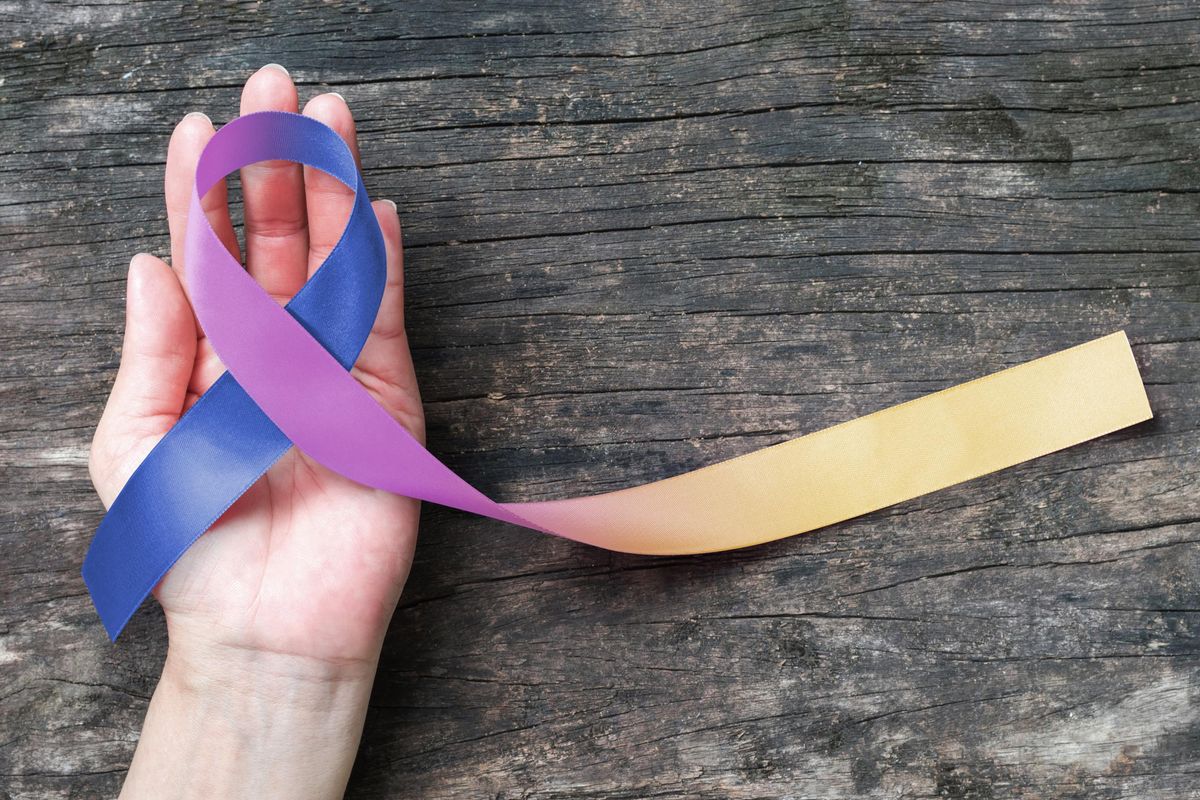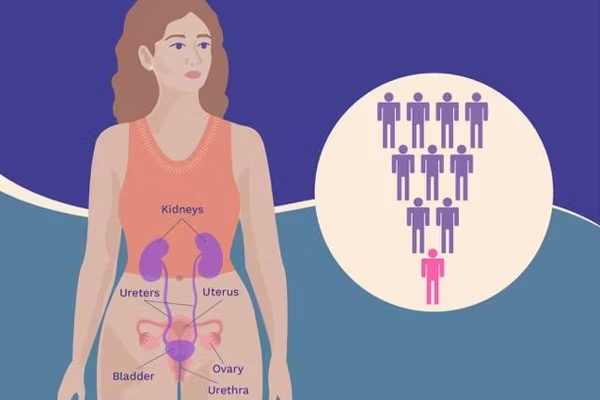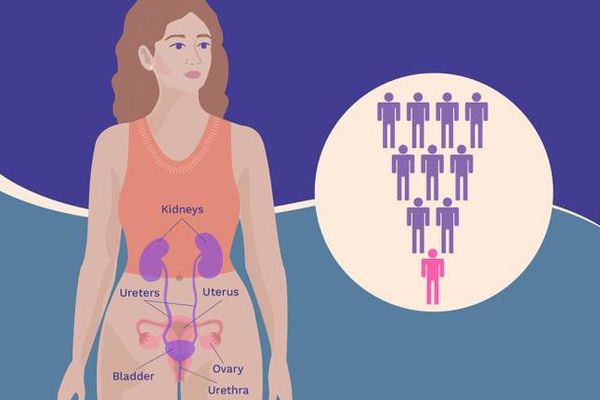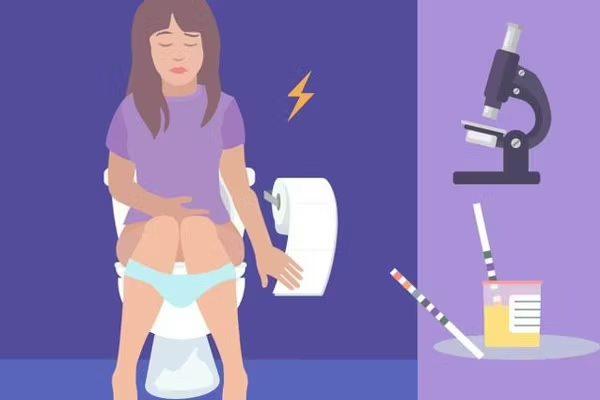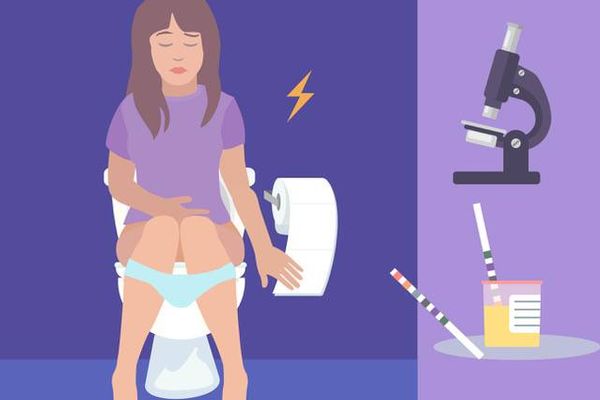More commonly referred to as "bladder cancer," urothelial bladder cancer (UBC) is about four times more common in men than in women. However, women generally have a worse prognosis. The key to a high survival rate among all people, however, is early detection.
What is urothelial bladder cancer?
UBC is cancer of the lining of the urinary system. It begins in urothelial cells, which line the inside of the bladder and other parts of the urinary tract. These cells overgrow and form a tumor. This type of cancer occurs most often in the bladder, but can occur anywhere that urothelial cells are present, including the urethra, ureters and kidneys.
There are three main types of urothelial bladder cancer: urothelial carcinoma (also known as transitional cell carcinoma), squamous cell carcinoma and adenocarcinoma. Urothelial carcinoma is the most common type of bladder cancer cancer in the United States; it accounts for up to 90% of all bladder cancers and up to 10% of all kidney cancers.
Squamous cell carcinoma forms due to chronic infection or chronic inflammation in the bladder, such as when a foley catheter is left in place for an extended time. This type of cancer is more common in other parts of the world where parasitic bladder infections more frequently occur. Adenocarcinoma is rare and forms from the mucus-secreting glands in the bladder.
What are the symptoms of urothelial bladder cancer?
Early stages of bladder cancer may not produce any symptoms. Often, early bladder cancer is diagnosed by microscopic blood on a routine urine test by your primary doctor. There may even be enough blood in your urine to make your urine appear bright red or brown. Other symptoms of bladder cancer could be a change in your urinary pattern — increasing urinary urgency or frequency, slow urine stream or urine stream that stops and starts, painful urination or even pelvic or back pain. These symptoms can often be mistaken for a simple urinary tract infection, so it's important to discuss these symptoms with your healthcare provider if you're having them.
What causes urothelial bladder cancer?
Exposure to tobacco and certain industrial chemicals, such as those used in the dye industry, can cause bladder cancer. These chemicals can cause damage to the urothelial cells that line the bladder, which can increase the risk of cancer.
Although there is no certain way to prevent bladder cancer, there are things you can do to lower the risk of this disease. The most important step women can take is to not smoke — and this includes any kind of smoking. Recent studies have found an increase of carcinogens present in those who vape or use e-cigarettes, so staying away from all forms of smoking lowers your risk.
What are the risk factors for urothelial bladder cancer?
There are several risk factors for bladder cancer, the most dangerous being cigarette smoking. In fact, in the United States, 50% of UBC cases can be attributed to smoking. Other risk factors include age (the average age at diagnosis is 73), race (Caucasians are at higher risk), exposure to certain industrial chemicals, exposure to arsenic in water, chronic bladder infections and chemotherapy or radiation for other cancers.
Certain chemicals (like those found in the dye, rubber, leather, printing and paint industries) can cause bladder cancer. Following good work safety practices is key to staying healthy. Avoiding these risk factors can vastly reduce the chances of developing bladder cancer.
Are there any disparities with urothelial bladder cancer among ethnic groups?
Whites are about twice as likely to be diagnosed with bladder cancer as Black and Hispanic people. Asian Americans and American Indians have slightly lower rates of bladder cancer, for reasons that remain unknown.
How prevalent is urothelial bladder cancer among women?
In the United States, approximately 19,000 women are diagnosed with UBC each year, and approximately 5,000 women die from UBC annually.What steps should I take if I'm diagnosed with urothelial bladder cancer?
Early referral to a urologist is the first step in the treatment of bladder cancer. It's important for people to understand the type of bladder cancer they've been diagnosed with and to understand whether the cancer is confined to the bladder lining or has progressed into the bladder muscle or spread (metastasized) beyond the bladder. Cystoscopy, a procedure where a small lens and camera are placed into the bladder, can identify a bladder tumor. A biopsy or tumor resection can be done at that time to determine tumor type and grade. Radiologic imaging, typically a CT scan with IV contrast, can be used to evaluate the surrounding structures of the bladder, as well as the kidneys and ureters. These tests are used to determine what stage the tumor is.
What are the treatment options for urothelial bladder cancer?
Treatment for bladder cancer varies based on several factors, such as your overall health, the type of cancer you have and the grade and stage of the tumor. Bladder cancer often requires surgery, which can be performed through the urethra using an instrument called a cystoscope to remove cancerous tissue.
Some people will receive radiation, chemotherapy or immunotherapy in addition to surgery. Bladder instillation, sometimes called a bladder wash, involves filling the bladder with a solution and allowing it to sit in the bladder for a while before draining it. This technique can be used to help prevent superficial bladder cancer (cancer that has not invaded the muscle) from recurring.
In cases of advanced disease where cancer has invaded the bladder muscle, surgery to remove the bladder and surrounding tissue may be required; this is called a radical cystectomy. Intravenous chemotherapy can be used in some cases, alone or in combination with radiation therapy in people who are not good candidates for surgery.
Does urothelial bladder cancer make me more likely to get Covid19?
Having bladder cancer does not make you more likely to contract Covid-19. However, if you have bladder cancer, you may be in need of frequent medical appointments, which could increase your potential exposure to the virus. Be sure to consult your healthcare provider about your specific risks.
This resource was created with support from Astellas.
- A Conversation With Dr. Sarah Psutka About Bladder Cancer - HealthyWomen ›
- Life After Diagnosis: Navigating the Things You Love with Urothelial Bladder Cancer - HealthyWomen ›
- Living with Urothelial Bladder Cancer - HealthyWomen ›
- Going Back to Work with Bladder Cancer - HealthyWomen ›
- Bladder Cancer and Black Women - HealthyWomen ›
- Urothelial Bladder Cancer Quiz - HealthyWomen ›
- It Took 2 Years to Find My Bladder Cancer - HealthyWomen ›
- The Connection Between Smoking and Urothelial Bladder Cancer - HealthyWomen ›
- Q&A About Urothelial Bladder Cancer Treatment - HealthyWomen ›
- Preguntas y respuestas relacionadas con el tratamiento contra el cáncer de vejiga urotelial - HealthyWomen ›
- What You Need to Know About Smoking and Bladder Cancer - HealthyWomen ›
- Diagnosing Urothelial Bladder Cancer (UBC) - HealthyWomen ›
- The Start and Spread of Urothelial Bladder Cancer - HealthyWomen ›

